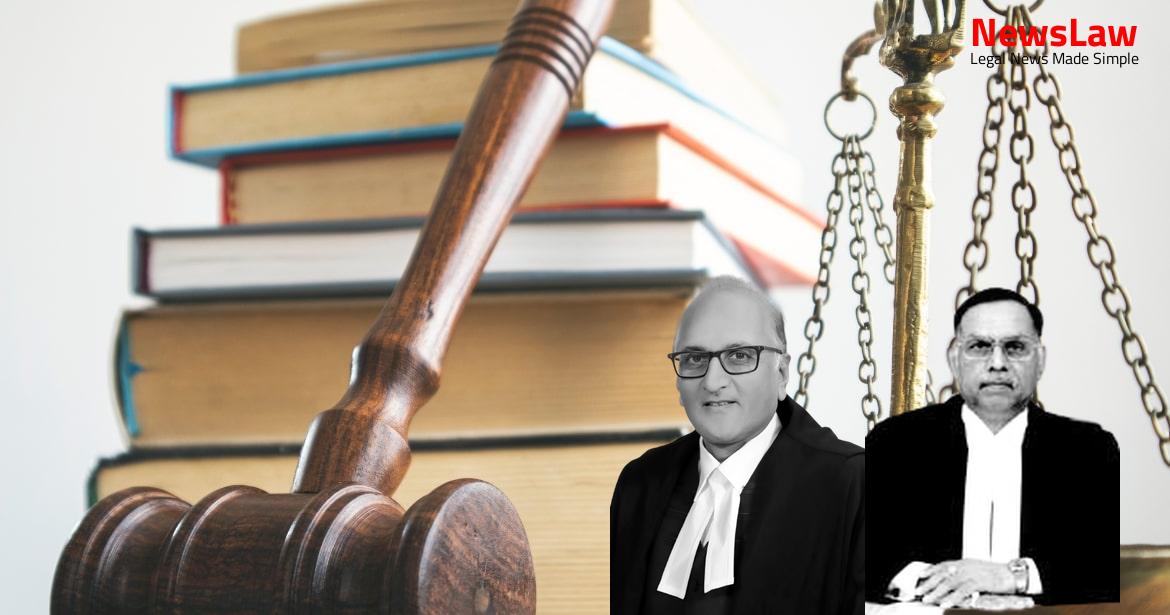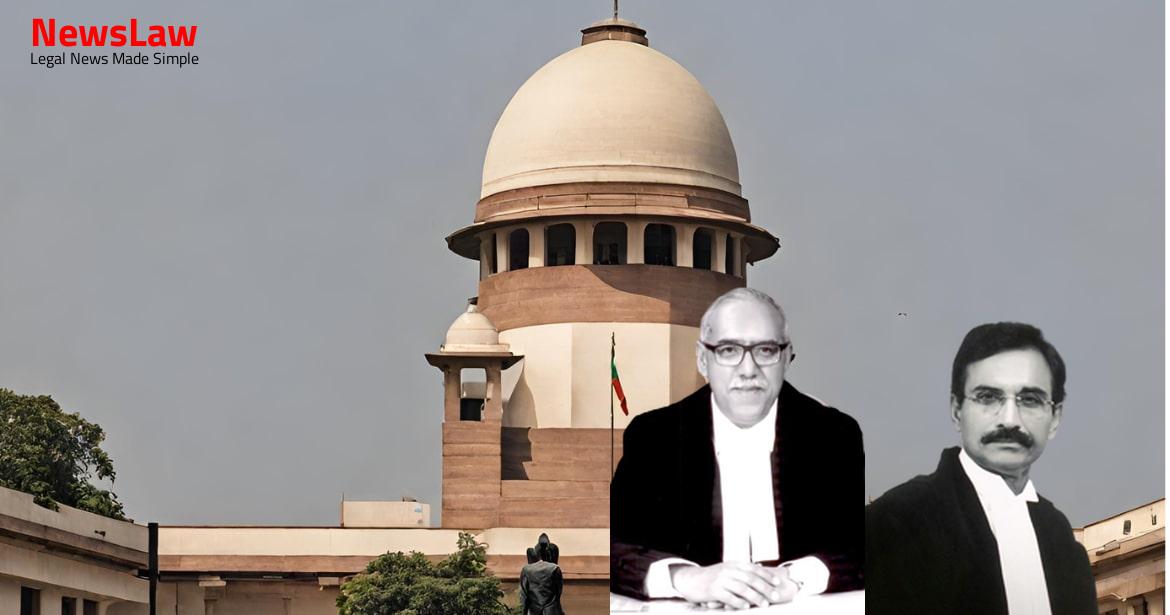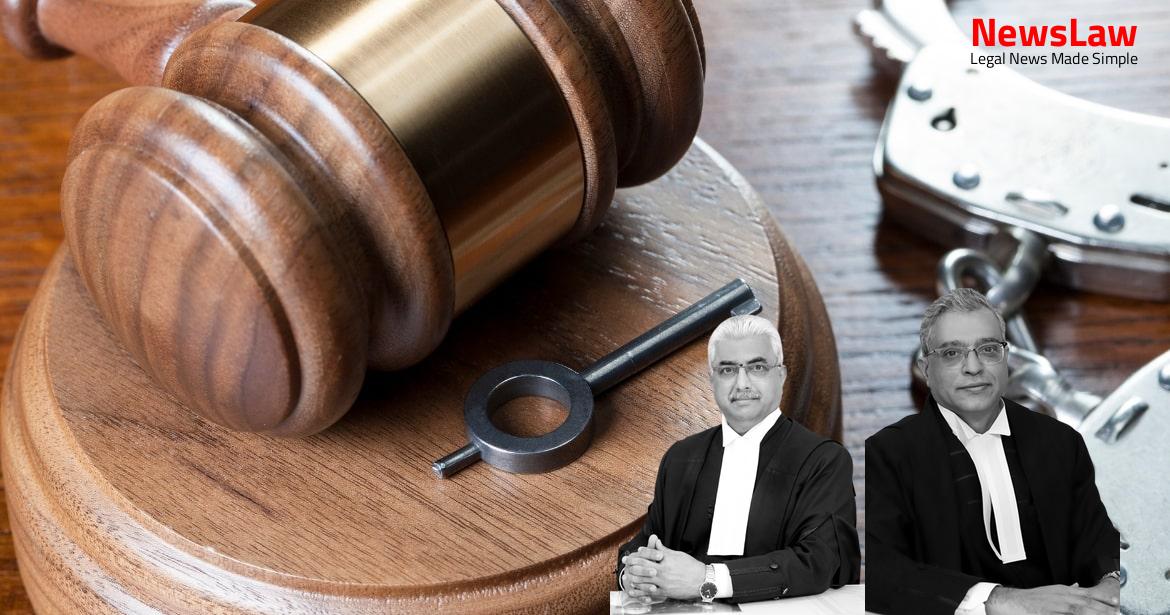In the recent legal analysis, the court dissected the interpretation of recruitment rules for Junior Engineer posts, focusing on the consideration of higher qualifications. The discussion revolved around the essence of the rules, specific qualifications, and the legislative intent behind them. Clarity in qualifications is highlighted as vital to ensure fairness in the assessment of candidates. Stay tuned to unravel the intricacies of this significant legal analysis.
Arguments
- The petitioner’s argument is based on the interpretation of the term ‘minimum’ used in the recruitment rules for the post of Junior Engineer (Electrical).
- They argue that the term ‘minimum’ was intentionally used without any bar under the rules, allowing for the appointment of degree holders to the post of JE (Elect.) in HPSEB.
- They refer to Clause 11 of the Rules for appointment to higher promotional posts of Assistant Engineers (Elect.) where 5% quota is provided for those possessing a degree at the time of their JE appointment.
- The contention is that the expression ‘minimum’ in the rules allows for the consideration of higher qualified candidates.
- They rely on a court decision where it was held that the expression ‘minimum’ entitles the employer to choose a person with a higher qualification.
- The petitioner further argues that the High Court’s interpretation of the rules in the impugned order is destructive and goes against the intent of the rule makers.
- They also point out that the diploma holders should not be disadvantaged as the rules provide a clear breakdown of promotional quotas for diploma holders and degree holders, allowing for some degree holders to be appointed under specific quotas.
- Additionally, they argue that the High Court erred in distinguishing a previous judgment and applying it to the current case.
- The argument revolves around the interpretation of the term ‘minimum’ and its implications on the eligibility of degree holders for the post of Junior Engineer (Electrical) under the relevant recruitment rules.
Also Read: Legal Analysis of Claim for Loss of Profit in Delayed Contract
Analysis
- The judgment revolves around the interpretation of recruitment rules and qualifications for the posts of Junior Engineers and Assistant Engineers in the context of Electrical and Electronic Engineering.
- The tribunal interdicted the recruitment process and set forth two distinct quotas of 5% each for diploma holders acquiring degree qualifications during service and those holding degrees before joining as Junior Engineers.
- The existing quota of 6% for those acquiring specific qualifications was reduced to 5% by an amendment.
- The court emphasized the importance of considering the rules as a whole, especially in relation to the specific qualifications prescribed for certain posts.
- The opinion of the court was fortified by a later amendment brought about on 03.06.2020.
- The rules were framed in 2006 and have since been amended several times to clarify the eligibility criteria for different engineering posts.
- The court discussed various cases to establish the principle that higher qualifications can be considered for certain posts depending on the legislative intent and the laid-down rules.
- The court analyzed the recruitment process, promotions, and qualifications required for various engineering posts within the HPSEB.
- The court highlighted the importance of clarity in rules and qualifications to avoid confusion and ensure fair assessment of candidates.
- The judgment also focused on the application of clarificatory amendments retroactively in certain cases and the need for consistency in interpretation.
- The court addressed the issue of degree holders competing for Junior Engineer posts and emphasized the need for a fair and comprehensive understanding of the rules and qualifications.
- The Board has the power to relax provisions of the rules for certain classes or categories of persons or posts.
- The competent authority for such relaxations shall be the WTM’s of the Board.
- On 12.01.2007, AICTE prescribed that a student must undergo a minimum of 3 years of institutional study to acquire a diploma in Engineering after the 10+2 Secondary Examination.
- Diploma holders were deemed academically equivalent to students who completed the first year of a 4-year engineering degree program.
- The decision in Jyoti K.K. [Jyoti K.K. v. Kerala Public Service Commission, (2010) 15 SCC 596 : (2013) 3 SCC (L&S) 664] centered around a specific statutory rule where a higher qualification could imply the acquisition of a lower qualification.
- The absence of such a rule in the current case led to a different outcome, justifying the reversal of the Single Judge’s judgment by the Division Bench.
- The State as an employer can consider various factors while prescribing qualifications, such as job nature, required aptitudes, course content, and functionality of qualifications.
- The decision in Jyoti K.K. (supra) must be understood within the context of a specific rule, highlighting the importance of statutory rules in determining qualifications for a post.
- In a separate case, the appointment of a graduate for a peon post was deemed unsupportable due to specific qualification requirements set by the employer.
- The employers have the discretion to determine qualifications for different posts based on job requirements and social perspectives, which courts should be cautious in interfering with.
- The retrospective operation of statutes is generally not applicable to declaratory statutes unless specified, and the intent of the legislature plays a significant role in determining the applicability of laws.
- Individuals with degrees before appointment as Junior Engineers entitled to separate sub-quota.
- Individuals must function as Junior Engineers continuously for prescribed period.
- Amendment to rules made on 03.06.2020 allowing those with higher qualifications to apply for appointment.
- Intent of rule makers to not exclude degree holders from consideration for Junior Engineer positions.
Also Read: Public Declaration Requirement in Marriage under Hindu Marriage Act
Decision
- The impugned judgment is set aside
- The appeals are allowed and the writ petition is allowed partly
- No costs are ordered
- The appeals by the degree holders have succeeded
- HPSEB is directed to process the candidature of all applicants, including degree holders
- HPSEB is directed to issue the final selection list after interviews based on relative merits
Also Read: OCI Cardholders’ Rights and Retroactive Notifications
Case Title: PUNEET SHARMA Vs. HIMACHAL PRADESH STATE ELECTRICITY BOARD LTD. (2021 INSC 233)
Case Number: C.A. No.-001318-001322 / 2021



